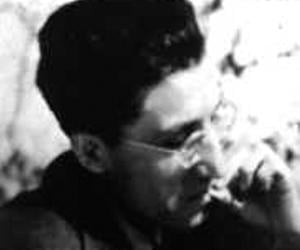

Scott Storch Flp Files Fl there. JACKET COPY Cesare Pavese (1908-50) was one of Italy’s great post-war writers. His poetry was revolutionary—both artistically and politically—rejecting the verbal and philosophical constraints of tradition and utilizing direct, colloquial language. His subjects were peasants, hobos, and prostitutes, and this bilingual volume includes all the poetry Pavese ever published, including work originally deleted by Fascist censors.
A landmark volume. Pavese was a novelist, poet, and translator and a major literary figure in post-war Italy. He brought American influence to Italian literature through his translations. Pavese’s flight from the Fascists and subsequent confinement were reflected in his writings, which dealt with social struggle and revealed his sympathy for the oppressed. Starcraft Broodwar 1.16.1 No Cd Crack. He committed suicide at the height of his literary powers.
SAMPLE POEMS COMMENTARY “Superb translations of a major poet. Brock does the impossible: he keeps the letter and spirit of the originals and creates poems in an American voice.” — Philip Levine “Brock’s translation is idiomatic, rhythmical, and utterly gorgeous. The poems actually seem to rise from the page, since this translator knows how to convey Pavese’s plain-speech eloquence and his painterly crispness. It helps to have a real poet as a translator.” — Peter Campion “These are the best Paveses ever.” — Michael Schmidt (author of Lives of the Poets) “Brock’s translation is the first of the complete poems of Pavese, and is by far superior and more accurate than the select translations that were published in 1969 and 1976.” — Quadrant (Australia) “Brock’s ‘hard labor’ in translating Pavese’s poetry has paid off in true poems in English: poems that have the density, the grit, the obdurate presentness hewn from silence for which Pavese fought so hard in Italian. Pavese’s poems remain vitally original in Italian a half century after their first appearance; in Brock’s English, they have the startling power of poems that will always be new.” — Rosanna Warren “This translation is a rare convergence of ambition and skill. Pavese’s weird, hard grace suffuses these impressive renderings.” — Henry Taylor “One of the marks of a good translation is the ability of the translator to create a ‘silence’ where the author’s voice can be heard. One listens, rather than reads.